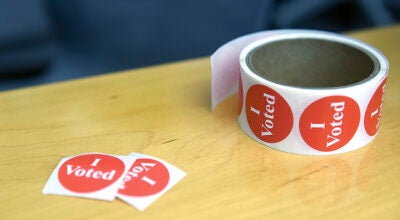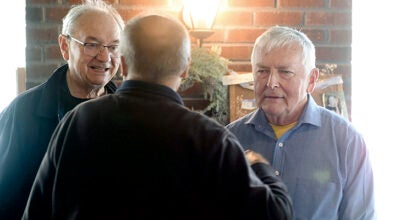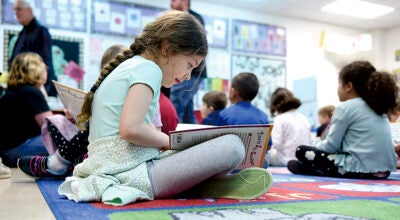How shall we embrace this world?
Published 5:15 pm Friday, January 20, 2023
|
Getting your Trinity Audio player ready...
|
“Add to your faith virtue ….. knowledge….. self-control ….. perseverance ….. godliness ….. brotherly (and sisterly?) ….. kindness …… love.” (The Bible — 2 Peter 1:5-7)
“Where can I go from Your spirit? Or where can I flee from Your presence?” — (Psalm 139:7)
A 12-year old boy was a key witness in a lawsuit. One of the lawyers, after intense questioning, said to the boy: “Your father told you what to say, didn’t he?” Yes,” answered the boy. “Now tell us please,” pursued the lawyer. “What were his instructions?” “Well,” replied the young boy. “Father told me that the lawyers may often try to tangle a person in their own testimony; but, my son, best be careful and tell the truth. You should say the same thing every time.”
Three items will refresh an embrace of our journey
One: Bitterness turned to praise in the Ernest Hemingway novel, “A Farewell to Arms.” Writers who have studied the life of this author have noted that Agnes Von Karowsky was his first love (1892-1984). While in the hospital, Agnes, a nurse, developed an affectionate relationship with Ernest. Following hospitalization, lovely letters were exchanged. She took to calling him “Kid,” while referring to herself as “Mrs. Kid!” Eventually through a fading of her affections, she broke off the relationship. Hemingway, back in his place of birth in Oak Park, Illinois, was shaken to the core. Through his panic, his emptiness, yet he recovered. His bitterness of his “loss” is seen in the aforementioned novel. Scholars say it was patterned on the romance with Karowsky. She later is a primary model for a strong gifted heroine of this World World War I novel. We possibly can grow from hurt to healing!
Two: Tolerating the expected and unexpected is your gift to yourself. Helen Keller, with her many misfortunes, could say, “tolerating is the greatest gift of the mind.” What we do with our wounds, and most of us could write at least one page in a memory book, is using the muscle often neglected — the mind. This energy propelled, champion of the wrestling match in the head, will respond to our efforts.
In reading pamphlets and parts of books on the practice of yoga, my horizons have lengthened. In recent years, thousands of people — men and women of every age, even children — have achieved new drama in their lives. I realized that some of us find our second-wind; our peace, with a long walk. But being in one place practicing yoga is the bright and morning star. Maybe more people need to read up on the message!
How is a chosen physical or mental practice going to address the aches of who we are? A quote that applies, I believe, comes from a poet, George Eliot: “Our deeds still travel with us from afar. And what we have been, makes us who we are.” I embrace my world, by going down deep, embracing myself. And one must say, “I am worthy!”
Three: Our personal seas can be calmed. The Biblical record may have miracle events that may find some people twisting and coming up with a gulp. The answer to some of the stories are understood as allegories or metaphors and are written to give the reader hope. However read, the story I print is full of action and promise. God’s way: “He made the storm be still, and the waves were hushed. Then they were glad because they had quiet, and he brought them to their desired haven.”
Picking out different worlds in this rendering of traditional verses in the Christian story leads to peace. Today I selected, “they were glad.” This is an emotion that we can cultivate; we can make trade-offs with intention. For instance, self-pity can be traded in for self-reliance. Criticism can be traded in for praising the deed of another. Being glad is not like a clock that runs forever with little attention. The joyful or satisfied feeling comes both from outside of me and from inside of me. Question: How do I embrace the world? I find that it’s possible when I embrace myself.
Jesus said: “Whoever does the will of God is my brother and sister and my mother.” (Mark 3:35)
“My mother.” What about Mary? Today we are expanding the relations — the fellowship.





